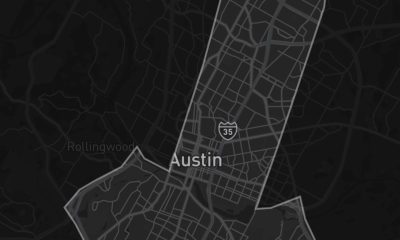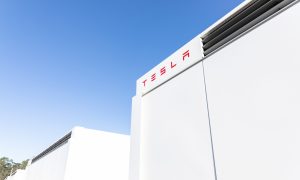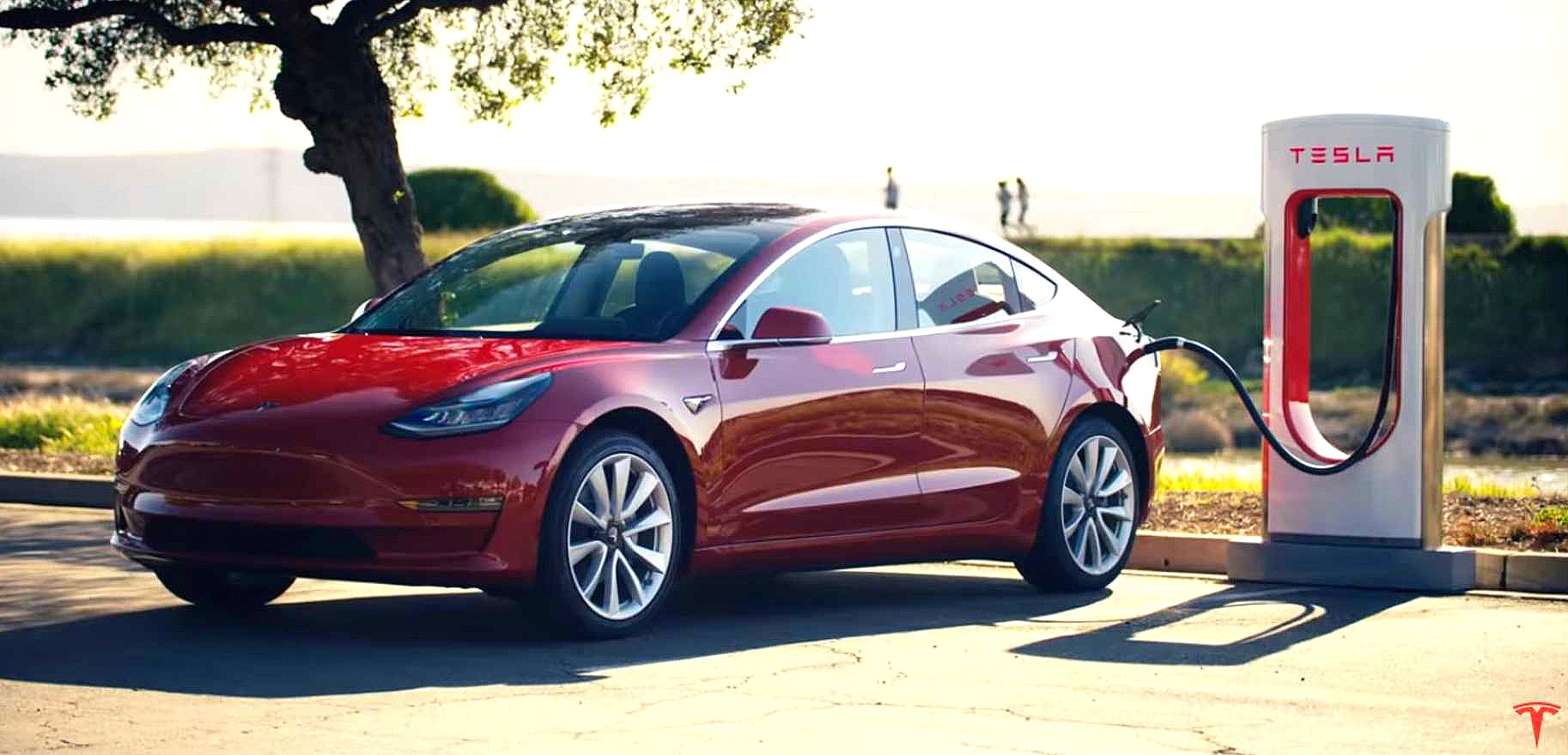

News
Tesla Superchargers are now over 3x cheaper than their biggest competitor
Tesla’s Supercharger Network just undercut one of its biggest competitors by over three times, and the company did not even have to lower its prices. In a recent announcement, IONITY, the rapid charging network that is considered as VW, BMW, Daimler, and Ford’s answer to the Tesla Superchargers, revealed that it would be updating its pricing structure by the end of the month — and what an update it is.
In a press release, IONITY stated that it would be launching a kilowatt-hour-based pricing scheme for customers across its established pan-European network starting January 31, 2020. The new rate is simple, with the company charging customers per kWh. The only issue is that IONITY will be charging electric car drivers 0.79 EUR ($0.88) per kWh.
That’s a substantial premium compared to the Tesla Supercharging Network, which has a rate of about 0.25 EUR ($0.28) per kWh. Thus, with this new pricing structure in place, an Audi e-tron or Porsche Taycan owner would end up paying about $80 to charge the all-electric SUV from zero to 100%. Considering that these vehicles are capable of traveling just over 200 miles on a charge, IONITY’s updated prices will make long trips on electric cars far more expensive than before.
IONITY boss Michael Hajesch, for one, noted that he does not think the new pricing strategy will turn customers away from using the network. In an interview with Handelsblatt‘s EV publication Edison Media, the IONITY executive explained that the rapid charging network’s advantages would likely be worth it for electric car drivers.
“I don’t have that fear. It is important to mention that the connected mobility service providers – and in this case, also include the Porsche charging service and BMW ChargeNow – offer attractive end customer offers. Direct customers without a contract benefit from the IONITY service promise, such as high availability, a Europe-wide HPC charging network, top locations directly on the motorway, and responsible operation of the charging stations with green electricity.”
He also argued that such price adjustments would likely not deter the advent of electric mobility. While he admitted that IONITY’s new pricing is high compared to its rivals in the market, Hajesch stated that the decision to raise the network’s prices was not difficult at all, even among its owners, VW, BMW, and Daimler.
“The discussion was not fierce or difficult at all. The price will not deter customers from buying, on the contrary. The overall service promise of the European IONITY HPC network already gives an answer to the key criticisms of the past regarding availability, charging power, green electricity supply, and range anxiety. We are therefore convinced that we are making a significant contribution to the market acceptance of electromobility.
“The purchase decision will not only depend on the IONITY price point on the long-haul route, which only accounts for five to ten percent of the annual charging needs. You also have to take into account the other use cases at home/work and public charging, which can already result in advantages over diesel and gasoline,” he said.
Despite the IONITY boss’ arguments, the fact remains that EV owners now need to pay far more to charge their vehicles using the rapid charging network. This will likely deter electric car owners who are budget conscious, and it might very well incentivize the ownership of internal combustion cars once more. After all, why buy an Audi e-tron that takes about $80 to fill up when a comparable gas or diesel-powered SUV can fill up for far less?
That being said, this update in IONITY’s pricing also highlights the practicality of Tesla’s Supercharger Network, which charges about $0.28 per kWh. Tesla’s Superchargers currently top out at 250 kW, which is less than IONITY’s peak of 350 kW, but considering the price difference, electric car owners will likely take the slightly slower charging speed and be charged a rate that is several times more affordable.
It’s unfortunate, but for now, at least, it appears that the only rapid charging network that is seriously going for petrol’s jugular is Tesla and is Superchargers.
Elon Musk
Tesla’s Robotaxi expansion wasn’t a joke, it was a warning to competitors
Tesla might have made a joke with its first Robotaxi service area expansion, but it was truly a serious warning to its competitors.
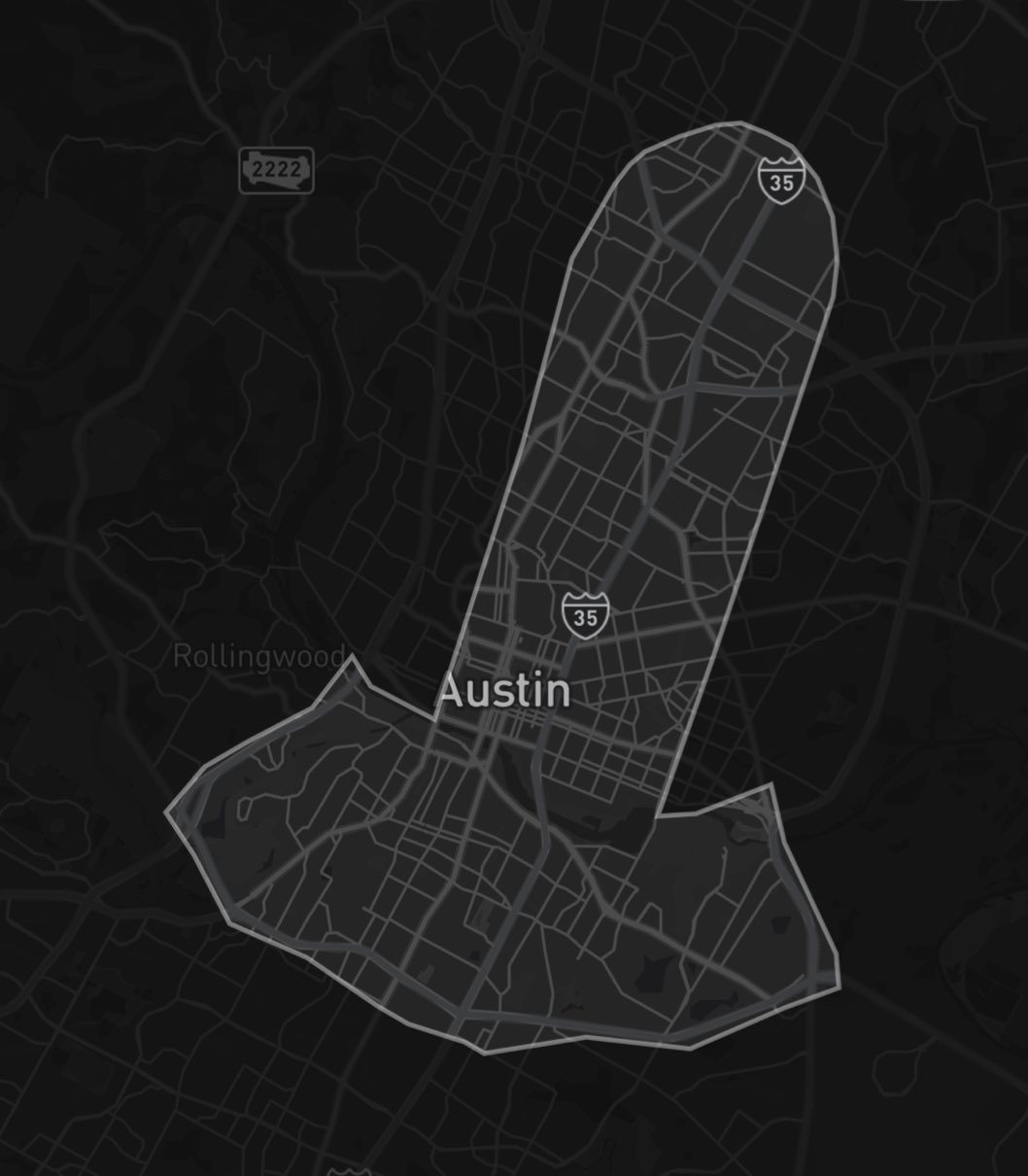
Tesla’s Robotaxi expansion occurred for the first time on Monday, and while the shape of its new service area might be “cocky,” it surely is not a joke. It’s a warning to competitors.
Robotaxi skeptics and Tesla opponents are sitting around throwing hate toward the company’s expansion appearance. Some called it “unserious,” and others say it’s “immature.” The reality is that it has a real meaning that goes much further than the company’s lighthearted and comical attitude toward things.
Proudly unserious
— Tesla (@Tesla) July 14, 2025
For context, Tesla has routinely used the number 69 as a way to price things it sells. 420 is another, an ode to cannabis culture. A few years back, it actually priced its Model S flagship sedan at $69,420. The first rides of the Robotaxi fleet were priced at $4.20. They are now being increased to $6.90.
Some call it childish. Others call it fun. The truth is, nobody is doing it this way.
Tesla updates Robotaxi app with several big changes, including wider service area
But today’s expansion of the Robotaxi service area in Austin is different. Tesla did not expand its shape to different neighborhoods or areas of the City of Austin. It did not expand it by broadening the rectangle that was initially available. Instead, it chose a different strategy, simply because it could:
🚨 Tesla’s new Robotaxi geofence is…
Finish the sentence 🥸 pic.twitter.com/3bjhMqsRm5
— TESLARATI (@Teslarati) July 14, 2025
Tesla could have done anything. It could have expanded in any direction, in any way, but it chose this simply because it has gotten Robotaxi to the point that it can broaden its service area in any direction. It chose this shape because it could.
Other companies might not have the same ability. Of course, many companies probably would not do this even if it could, simply because of the optics. Tesla doesn’t have those concerns; it has been open about its ability to be funny, and yes, immature, at times.
But in reality, it was a stark warning to competitors. “We can go anywhere in Austin, at any time, and we’re confident enough to make a joke about it.”
Tesla’s Robotaxi geofence in Austin grows, and its shape is hard to ignore
As Tesla is already aiming to expand to new states and high-population areas, and with applications filed in Arizona and California, Robotaxi will be in new regions in the coming weeks or months.
For now, it remains in Austin, and Tesla is sending a message to other companies that it is ready to go in any direction. The driverless Robotaxi fleet, bolstered by billions of miles of data, is ready to roam without anyone at the wheel.
News
Tesla Robotaxi has already surpassed Waymo in this key metric
Tesla Robotaxi has already overtaken Waymo in Austin in one key metric, but there’s still more work to do.

Tesla Robotaxi has already surpassed Waymo in one extremely important key metric: size of service area.
Tesla just expanded its service area in Austin on Monday morning, pushing the boundaries of its Robotaxi fleet in an interesting fashion with new capabilities to the north. Yes, we know what it looks like:
🚨 Tesla’s new Robotaxi geofence is…
Finish the sentence 🥸 pic.twitter.com/3bjhMqsRm5
— TESLARATI (@Teslarati) July 14, 2025
The expansion doubled Tesla Robotaxi’s potential travel locations, which now include the University of Texas at Austin, a school with over 53,000 students.
The doubling of the service area by Tesla has already made its travel area larger than Waymo’s, which launched driverless rides in October 2024. It became available to the public in March 2025.
According to Grok, the AI agent on X, Tesla Robotaxi’s current service area spans 42 square miles, which is five square miles larger than Waymo’s service area of 37 square miles.
Tesla Robotaxi (red) vs. Waymo geofence in Austin.
Much can be said about the shape… but the Robotaxi area is now ~3.9 mi² (10 km²) larger than Waymo’s!! pic.twitter.com/dVfh2ODxJC
— Robin (@xdNiBoR) July 14, 2025
The service area is one of the most important metrics in determining how much progress a self-driving ride-hailing service is making. Safety is the priority of any company operating a ride-hailing network, especially ones that are making it a point to use autonomy to deploy it.
However, these companies are essentially racing for a larger piece of the city or cities they are in. Waymo has expanded to several different regions around the United States, including Arizona and Los Angeles.
Tesla is attempting to do the same in the coming months as it has already filed paperwork in both California and Arizona to deploy its Robotaxi fleet in states across the U.S.
As the platform continues to show more prowess and accuracy in its operation, Tesla will begin to expand to new areas, eventually aiming for a global rollout of its self-driving service.
News
Tesla Megapacks arrive for massive battery replacing coal plant
Tesla Megapacks have started arriving on-site to the Stanwell Battery Project, just as Queensland prepares to wind down the Stanwell coal plant.
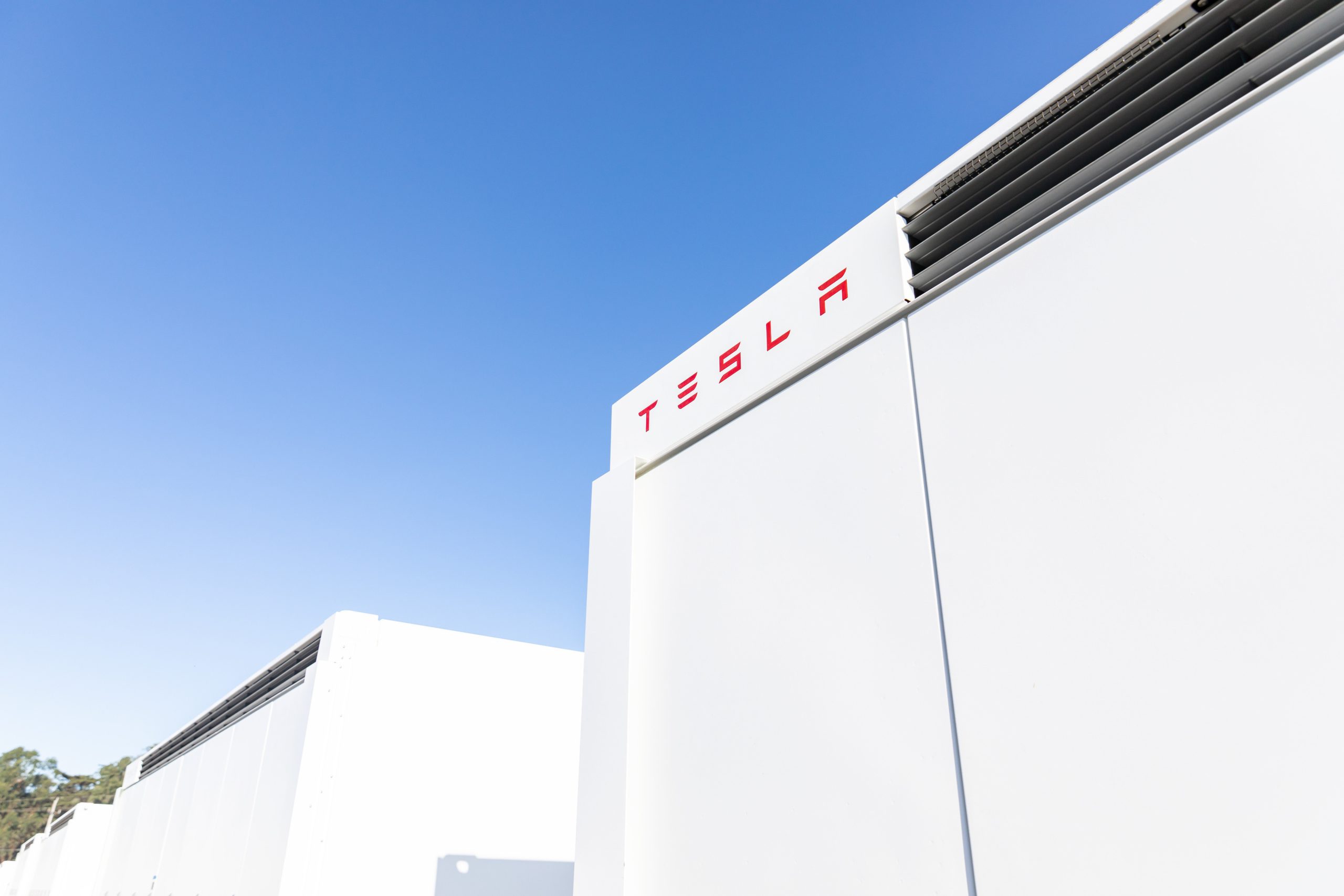
The first of over 300 Tesla Megapacks have arrived to the site of a massive battery energy storage system (BESS) being built in Australia, dubbed the Stanwell Battery Project after a coal plant it’s set to replace.
In a press release last week, the Stanwell Battery Project announced that the first Tesla Megapack 2XL units had arrived to the site, which is located outside of Rockhampton in Queensland, Australia. The project will eventually feature 324 Megapack units, set to arrive in the coming months, in order to support the 300MW/1,200MWh battery project.
“The Stanwell Battery is part of the diversification of our portfolio, to include cleaner and more flexible energy solutions,” said Angie Zahra, Stanwell Central Generation General Manager. “It is just one part of the 800 MW of battery energy storage capacity we have in our pipeline.
“Capable of discharging 300 MW of energy for up to four hours (1,200 MWh), our mega battery will be one of the largest in Queensland.”
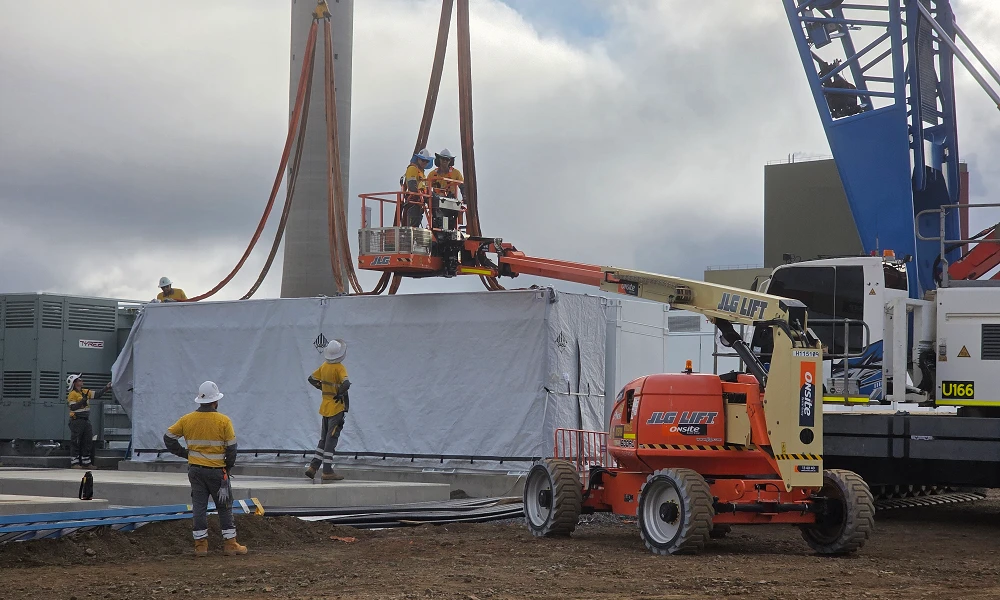
Credit: Stanwell
Did you know Tesla’s Lathrop facility churns out a Megapack every 68 minutes? That’s enough energy to power 3,600 homes for an hour per unit! ⚡️ pic.twitter.com/bG6fpHkB9O
— TESLARATI (@Teslarati) June 11, 2025
READ MORE ON TESLA MEGAPACKS: Tesla Lathrop Megafactory celebrates massive Megapack battery milestone
The state is working with government-owned company Yurika to facilitate construction, and the process is expected to create roughly 80 jobs. The project is expected to come fully online in May 2027, with initial commissioning of the Megapacks aiming for November 2025.
The Stanwell Battery is set to replace the nearby Stanwell coal generation plant, which the government is planning to wind down starting in 2026 as part of efforts to reach an 80 percent renewable energy generation ratio by 2035. Meanwhile, the government is also set to begin winding down the Tarong and Callide coal plants, while several other Megapack projects are being built or coming online. o ya
Tesla currently has two Megapack production facilities, located in Lathrop, California, in the U.S. and another that came online earlier this year in Shanghai, China. The Shanghai Megafactory shipped its first units to Australia in March, while both factories are expected to be capable of producing 10,000 Megapack units per year upon reaching volume production.
-

 Elon Musk2 weeks ago
Elon Musk2 weeks agoTesla investors will be shocked by Jim Cramer’s latest assessment
-

 News2 days ago
News2 days agoTesla debuts hands-free Grok AI with update 2025.26: What you need to know
-

 Elon Musk5 days ago
Elon Musk5 days agoxAI launches Grok 4 with new $300/month SuperGrok Heavy subscription
-

 Elon Musk7 days ago
Elon Musk7 days agoElon Musk confirms Grok 4 launch on July 9 with livestream event
-

 News2 weeks ago
News2 weeks agoTesla Model 3 ranks as the safest new car in Europe for 2025, per Euro NCAP tests
-

 Elon Musk2 weeks ago
Elon Musk2 weeks agoxAI’s Memphis data center receives air permit despite community criticism
-

 News4 days ago
News4 days agoTesla begins Robotaxi certification push in Arizona: report
-

 Elon Musk2 weeks ago
Elon Musk2 weeks agoTesla scrambles after Musk sidekick exit, CEO takes over sales


